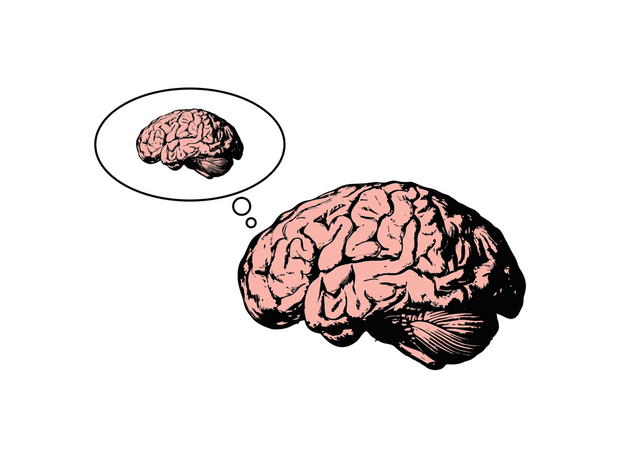When a person experiences communication difficulties because of a cognitive problem, they may have a “cognitive-communication impairment”. For example, a person might have an underlying memory problem which results in difficulty remembering the topic of a conversation, or difficulty remembering the steps in an instruction. These communication difficulties are caused by the memory impairment, and so the person would be described as having a cognitive-communication problem.
In this article we will explore “what is cognitive communication?” You’ll find information about causes, impacts, assessment, and management of cognitive-communication impairment.
What is Cognitive-Communication?
Cognition is made up of nine main skills. These are: information processing, attention, memory, problem solving, flexibility, planning and organising, reasoning, self monitoring, and insight. Cognitive skills are usually controlled by the brain’s frontal lobe.
When a person has impaired cognitive skills, one or more of the above areas can be affected. Our brains are unique, so damage to one person’s brain will present differently to another person.
A cognitive impairment will impact many aspects of a person’s life. For this article, we are focusing on communication. So, let’s look at each area of cognition. Behind each tile you’ll find examples of communication changes that occur as a result of problems with that cognitive skill. All of the communication changes on this page are examples of cognitive-communication impairment.
Information Processing
Information Processing
Slow to think and reply.
Seeming disinterested.
Slow to recall words.
Attention
Attention
Not focusing on what the other person is saying.
Getting side tracked and going on tangents in conversation.
Memory
Memory
Forgetting what is being talked about.
Unable to recall a recent event, so can’t then talk to friends about things you’ve been up to.
Problem Solving
Problem Solving
Unable to explain how to do things.
Needing help to figure out solutions to a problem.
Cognitive Flexibility
Cognitive Flexibility
Getting stuck on their own opinion.
Difficulty adopting new ideas.
Taking a long time to adapt to new situations.
Planning and Organising
Planning and Organising
Seem to jump around in conversation.
Not sure how to explain things.
Stories are long, convoluted, or confusing.
Reasoning
Reasoning
Difficulty thinking things through.
Difficulty understanding or weighing up options.
Self Monitoring
Self Monitoring
Overly familiar, inappropriate, or tactless.
Low frustration tolerance.
Insight
Insight
Unaware of communication breakdown.
Unrealistic about communication expectations.
NOTE! It is rarely this clear-cut. A person often has impairments in more than one cognitive skill. Which means that if conversation with a person is disjointed and hard to follow, that could be related to multiple cognitive skills including memory, attention, planning, or reasoning.
Causes and Impact
A cognitive-communication impairment is caused by neurological (brain) damage. The most common causes are:
- traumatic brain injury (TBI)
- stroke
- tumour
- progressive diseases such as dementia
Cognitive-communication disorders are common after severe TBI, with over 70% of people experiencing some level of communication disability as a result of their injury.
In progressive diseases such as dementia, cognitive-communication changes are subtle in the beginning. For example, some word finding difficulties or going over the same ground in conversation. Changes often take place slowly, and can creep up on you. Suddenly you realise that communication with your loved one with dementia is not the same, and you can look back and recognise situations of communication breakdown that you can later attribute to a dementia diagnosis.
Regardless of the cause, cognitive-communication disorders can have significant effects on employment, friendships, school, and community life. When a person has difficulty explaining or understanding information in a way that is logical, efficient, friendly, and/or helpful, that can be a real barrier to successful work and personal relationships.
Assessment of Cognitive-Communication
Speech pathologists are the professionals responsible for assessing and diagnosing a cognitive-communication impairment. When assessing a person’s cognitive-communication skills, we must be clear about the purpose of the assessment. We never assess a person just to highlight all the things that are wrong with them! We have a range of tools available so that we can get an accurate picture of a person’s strengths and areas of weakness, and so that we get the information we need to help that person in their life.
An an example of the different ways we assess cognitive-communication:
- If a person tells us that conversations with family are a problem, we might ask for an audio or video recording of the person in conversation with their family, which we can then use to complete a discourse analysis.
- If a person tells us that explaining things at work is an issue, we can assess the person’s ability to tell stories and procedures, then use standardised assessments which include problem solving, verbal explanation, and verbal reasoning tasks.
Wherever possible, we will be in touch with members of the multi-disciplinary team to get a comprehensive picture. Often the person has already completed a Neuropsychological Assessment and this report is extremely useful to the speech pathologist when diagnosing a cognitive-communication impairment.
Here are some of my favourite assessment tools:
Cognitive-communication therapy
In addition to conducting an assessment, speech pathologists are the professionals responsible for treating cognitive-communication impairments. We will design a treatment plan to meet an individual’s goals and situation
Fortunately we can turn to high quality publications for treatment advice, such as the INCOG 2.0 Guidelines for Cognitive Rehabilitation Following Traumatic Brain Injury, Part IV: Cognitive-Communication and Social Cognition Disorders. This excellent paper, published in 2023, provides a framework for treating cognitive-communication impairments. There is renewed focus on cultural responsiveness, interprofessional practice, meaningful outcomes, and personal identity, as part of cognitive-communication treatment.
Here is the INCOG 2.0 list of recommended treatments for cognitive-communication impairment after brain injury:
These interventions can be delivered in different formats. Treatment sessions might take place one-to-one, in a group, in person, or online using telepractice. All of these formats are effective.
If you are interested in online treatments, you MUST check out Social-ABI-lity. In 2022, the University of Sydney released this online treatment program for people with acquired cognitive-communication impairments and it is free and backed by research. You can find it here: Social-ABI-lity
For cognitive-communication impairments associated with dementia, we might take a slightly different approach. We have a separate article on our website which summarises evidence-based interventions in dementia. You can find that article here: https://wollongongspeech.com.au/speech-pathology-intervention-in-dementia/
Summary
Cognitive-communication impairment is a term used to describe a communication problem that exists because of an underlying cognitive problem. It is usually caused by acquired brain injury. Speech pathologists are responsible for the assessment and treatment of cognitive-communication impairments. To do this, we work closely with the client, their family, and the interprofessional team. We make sure that our assessment and treatment is focused on what the person needs to live their life to the fullest.
Where can I find out more about cognitive-communication?
To read more, take a look at these links:
References
- Togher, Douglas, Turkstra, Welch-West, Janzen, Harnett, Kennedy, Kua, Patsakos, Ponsford, Teasell, Bayley, and Wiseman-Hakes (2023). INCOG 2.0 Guidelines for Cognitive Rehabilitation Following Traumatic Brain Injury, Part IV: Cognitive-Communication and Social Cognition Disorders. Journal of Head Trauma: 38 (1), 65-82.



